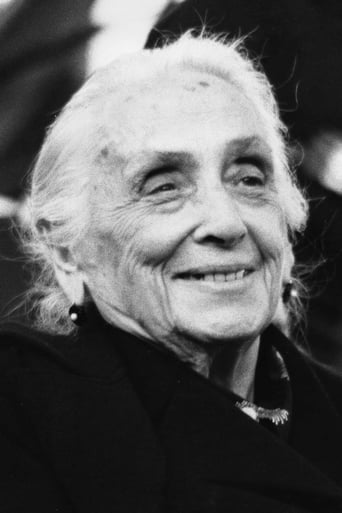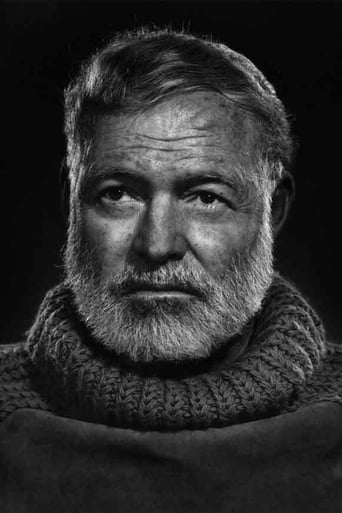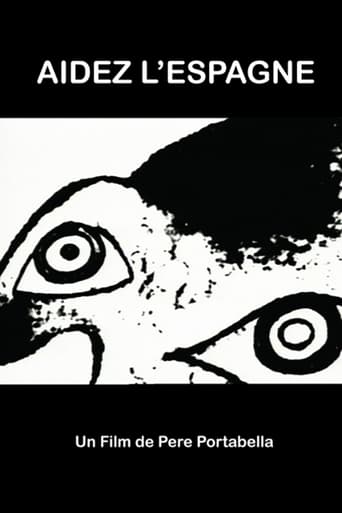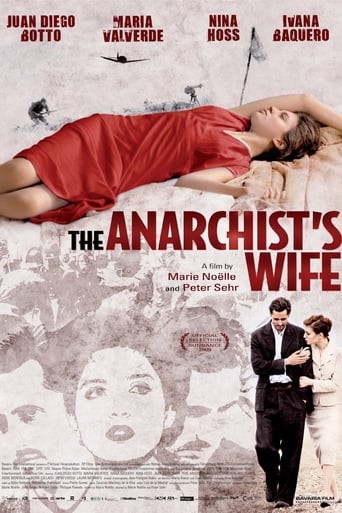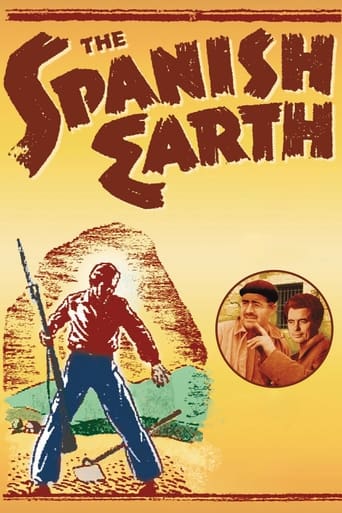

The Spanish Earth (1937)
A propaganda film made during the Spanish Civil War in support of the Republican government against the rebellion by Gen. Francisco Franco's forces who were backed by Nazi Germany and Fascist Italy. The film would have been seen by those making it as a documentary.
Watch Trailer
Cast


Similar titles
Reviews
This famous "on the fly" barely-feature-length documentary about the Spanish Civil War was endorsed by the likes of writers Ernest Hemingway (who provides the dry narration), John Dos Passos, Lilian Hellman and actor Orson Welles (whose name also appears on the poster but whose vocal contributions were eventually dropped). Starting out with the images of farmers 'testing' for water sources on their lands, it soon settles down to denoting how the conflict was affecting a besieged Madrid: from the breadlines offering insufficient stamped supplies to the clandestine Loyalist meetings to the destruction left in the wake of the Fascist (read Nazis and Italians) aerial bombings.Although the Spanish Civil War would be the subject of several Hollywood movies – most prestigiously via Hemingway's own epic FOR WHOM THE BELL TOLLS (1943) – and cast an indelible shadow over the careers of future native film-makers (especially Carlos Saura), we know precious little about the conflict itself and, tellingly, we do not learn much here either; indeed, Ivens is merely content to observe – panicking villagers mourning their dead and loss of property – and report – we are told that the bearded Loyalist officer seen here organizing and inspecting his troops will die in the next assault! Perhaps the most striking moment occurs when a bike-riding mailman enters a building and has to literally skip over the corpses of victims still blocking the foyer entrance! Interestingly, the U.S. funded production was selected by the "National Board of Review" as one of the year's Top 10 foreign films!
This jumbled and disjointed documentary by the Republican Government of Spain against the Nazi backed Fascist revolt by Franco's military has sufficient civilian carnage and idealism that must have inspired sideline support in its day. It is also a valuable document of eyewitness clarity that informs a mostly forgotten era during the rise of Fascism In Europe. Written and narrated by famed novelists Ernest Hemingway and John Dos Passos who would later break with each other over Republican practices the film's primitive construct sometimes acts as a metaphor for what was truly a chaotic conflict with poorly trained volunteers manning the front lines with incredible spirit against the well oiled Nazi backed machine. In its day though it must have served its purpose being played for sympathetic audiences cheering the principals and inspiring others to the cause. Hemingway makes for a weak narrator and the editing and sound is pedestrian obfuscating the flow much of the time but the spirit and determination of this idealistic stand by a group branded as pre-mature anti-Fascists comes thru loud and clear.
The movie makes no conventional attempt to situate viewers at the outset. Instead we're plunged immediately into a series of images loosely organized around the theme of hard Spanish earth. However, the pastoral scenes soon give way to images of fighting men. But in the absence of explanation, viewers can't be sure if the soldiers are Republican or Falange (fascist). It's only after about 15-minutes, we find out these are people supporting the republic. Maybe Ivens or Hemingway is making a subtle point by withholding information, but the absence could be confusing to contemporary viewers.The movie itself has some compelling images; however, I doubt that most go beyond generic war imagery of that time. One does, nonetheless, get a sense of the impact on the civilian population in the areas surrounding Madrid. In no sense is the film a survey of that bloody civil war as a whole. Instead, it's a narrow slice from the loyalist republican pov. But neither is the movie simply Stalinist agitprop, (the Soviets supported the elected government; Hitler and Mussolini the Falangist rebels; while the US and England remained neutral). Rather, a strong subtextual theme appears to liken support for the republic to bringing water to the dry Spanish earth, a not unreasonable pov. It's also worth noting the anti-fascist side quickly became a cause-célèbre among artists and intellectuals disgusted by the US and England's refusal to aid a fellow democratic government. Thus the movie has a number of illustrious names attached to it. It's likely because of these names that I expected more than the overall result delivers. Nonetheless, the brief documentary remains a snapshot worth watching, even for those unfamiliar with the historical period.
I find this documentary film about the Spanish Civil War deeply moving. There are several causes. One is the narrative, which is done by Ernest Hemingway, a personality who for some reason has always appealed strongly to my imagination. And then there is the war itself, which is legendary especially among people with progressive inclinations. It was there and then, that a democratically elected government and a peoples army tried to resist the fascist troops of Franco. The civil war soon obtained international dimensions, when the Italian and German fascists started to support Franco. The peoples army, on the other hand, was reinforced by tens of thousands of international volunteers, united in international brigades. Ernest Hemingway was among these, as well as Joris Ivens. The film narrates of illustrious battle scenes, such as the defense of Madrid, in particular the heroic fight for the Argand bridge over the Jarama river. Just the name awakens in memory the sound of the pertinent Ernst Busch songs, another veteran of the Civil War, giving shivers along the spine. In addition, the time was politically interesting, since for the first time anarchist cooperation methods seemed to work out in a fruitful way. The film succeeds brilliantly in catching the contemporary spirit of hope and heroism. A large part is devoted to realistic (albeit probably partially enacted) battle scenes, where the republican army digs in against the fascist attacks. There is however also plenty of room for rural scenes, of village life at and just behind the front. It was vital to maintain the food supply to the beleaguered city of Madrid. And life in Madrid itself is shown, with the bombardments by the air force of Franco. We also witness the speeches and debates in the Spanish parliament. Of course the film is not neutral or an objective account. The story is clearly romanticized and sometimes dramatized, for instance when we see the farmers son writing letters home, or returning on leave to his family. And although I am not an expert, the democratically elected government actually seems to have been far from ideal. There were many abuses, and the intervention of the communist brigades does not help in increasing its good reputation. Nevertheless, it is still obvious who are the good guys, and who are the crooks. The film contains plenty of movement and action, and it ably addresses our feelings of sympathy. It are films such as Misere au Borinage and this one, which imho makes Joris Ivens a greater film maker than Eisenstein. If you fancy war films or the Spanish Civil War, this film is definitely a must-have.


